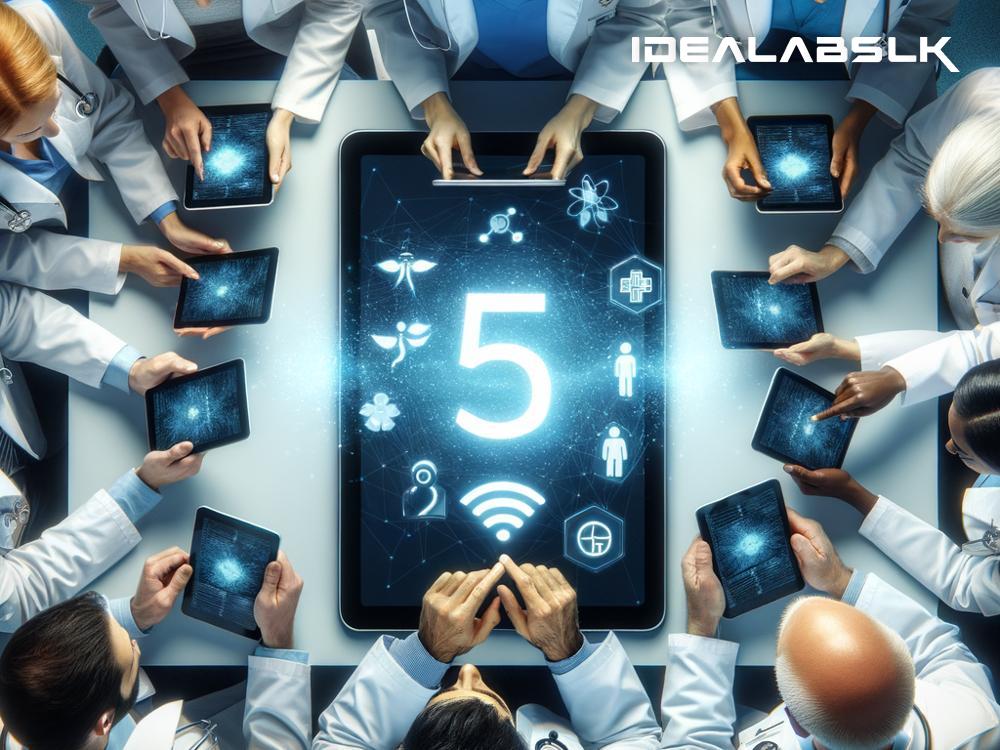Title: How 5G is Revolutionizing Healthcare: Quicker Communication, Improved Diagnoses
The leap from 4G to 5G technology may seem like just another step in the rapid pace of technological advancement. Yet, it's proving to be more of a giant leap, especially in the healthcare sector. The advent of 5G is not just about faster internet speeds for browsing or downloading content; it's about transforming industries, and one of the most impacted is healthcare. 5G technology is paving the way for faster communication, better diagnoses, and overall enhanced healthcare delivery. Let's unpack how this new tech wave is revolutionizing healthcare services.
Quicker Communication - The Lifeline of Healthcare
In the context of healthcare, communication isn't just about talking faster; it's about saving lives. 5G's promise of virtually instantaneous data transfer can significantly cut down the time doctors need to get crucial patient information, make decisions, and provide treatment. Imagine paramedics transmitting vital signs and video footage directly to the emergency room in real-time while still en route to the hospital. This allows hospital staff to assess the patient's condition promptly and prepare everything needed for treatment the moment the ambulance arrives. Saving time in emergency situations can often mean saving lives.
Seamless Remote Monitoring and Care
The concept of remote monitoring isn't new, but 5G is set to take it to another level. With its broad bandwidth and higher speed, 5G enables the use of more sophisticated and real-time remote monitoring tools. Patients with chronic conditions can be equipped with wearable devices that continuously send data about their health status directly to their healthcare providers. This means doctors can keep an eye on their patients' health indicators like heart rate, blood pressure, and glucose levels without them having to leave their homes. This not only makes healthcare more accessible but also allows for early intervention before a condition worsens, thereby enhancing patient outcomes.
Facilitating Telemedicine
Telemedicine, or the practice of caring for patients remotely when the provider and patient are not physically present with each other, has gained significant traction, especially in the wake of the COVID-19 pandemic. 5G is set to further facilitate this trend by offering smoother, more reliable video calls and data sharing between patients and doctors. This is particularly beneficial for people living in rural or underserved areas, where access to healthcare facilities and specialists might be limited. With 5G, geographical barriers are being broken down, allowing everyone, everywhere, access to high-quality healthcare.
Aiding Better Diagnoses with AI and Big Data
Artificial Intelligence (AI) and Big Data are playing increasingly important roles in diagnosing diseases, with algorithms that can identify patterns and anomalies that might elude human eyes. However, these systems require a massive amount of data to be effective. Here’s where 5G comes in - by enabling the swift transfer and analysis of large datasets, it allows AI systems to function more efficiently and provide quicker, more accurate diagnoses. For instance, in radiology, AI can help in analyzing thousands of images at unprecedented speeds, aiding in early detection of conditions like cancer, which significantly improves the success rate of treatments.
Enhanced Training through Virtual Reality
Finally, let’s not forget the vast potential 5G holds for medical training. Through Virtual Reality (VR), medical professionals can experience highly realistic simulations of surgeries and other procedures, helping them to hone their skills without any risk to real patients. The low latency (delay) of 5G improves the responsiveness and realism of these simulations, making VR training more effective and immersive.
Conclusion
The integration of 5G technology into healthcare is a game-changer, offering a new realm of possibilities for patient care and medical training. By enabling faster communication, seamless remote monitoring, and more effective use of AI and big data, 5G is not just enhancing the healthcare delivery system; it’s redefining it. It’s facilitating a future where healthcare is more accessible, efficient, and personalized than ever before. As we stand on the brink of this revolutionary change, it's clear that the ripple effects of 5G in healthcare will be felt far and wide, promising a brighter, healthier future for all.

